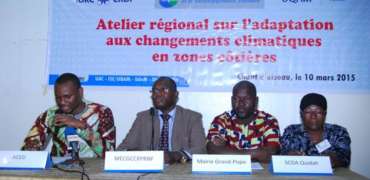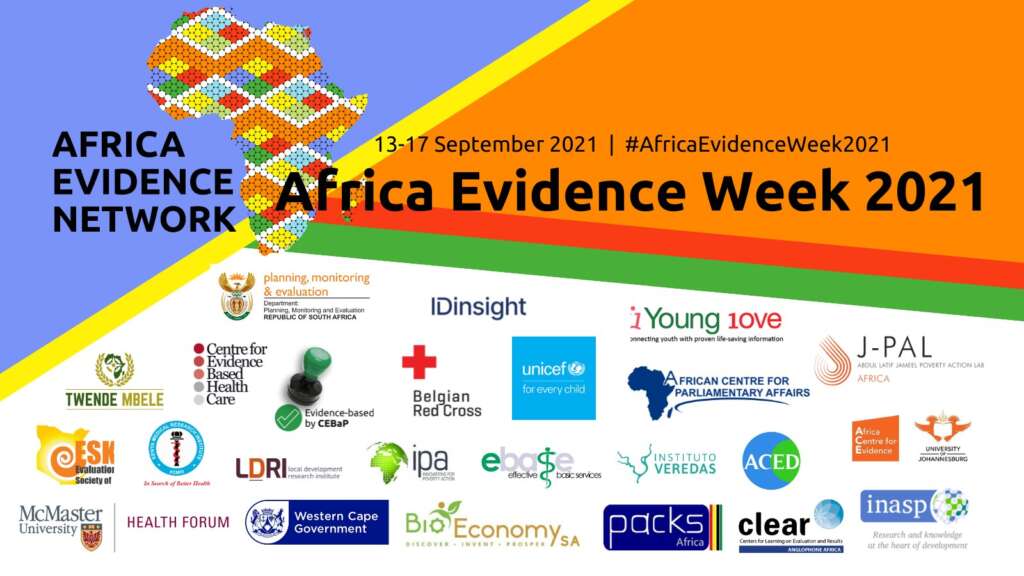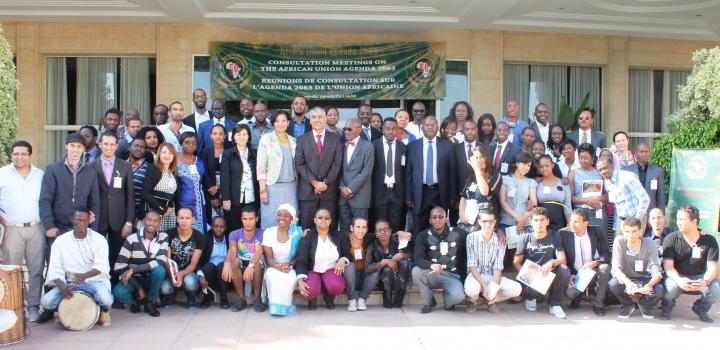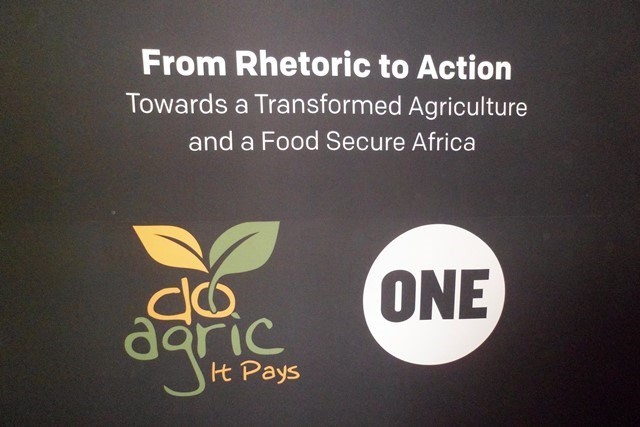The regional workshop organized by ACED on 10th march 2015 in Benin was focused on the topic “Adaptation to climate change in coastal areas: Regional lessons for local actions” was a great success. This workshop gathered several stakeholders from public and private sector, civil society, research and local institutions. This diversity of actors allowed having diverse perspectives and various experiences on climate change in coastal areas.
The opening ceremony was chaired by the Ministry of Environment, in charge of the management of Climate Change, Reforestation and the Protection of Natural Resources represented by Mr Julien Adounkpe. Four presentations were given:
- “Global challenges of climate change in coastal areas and realities of Benin context”, by Dr Ibouraïma Yabi, Researcher at the Department of Geography of the University of Abomey-Calavi. Download his presentation.
- “Vulnerability of Benin coastal areas to climate change: Ouidah and Grand-Popo sector” by Audrey Agonvi, Student at the Department of Geography of the University of Abomey-Calavi whose research was funded by ACED. Download her presentation.
- “Vulnerability of island communities of the Saloum Delta in Senegal to variability and climate change and adaptation strategies” by Abdourahmane Kane, representative of the Senegalese Ministry of Environment. Download his presentation.
- “Insights of CRDI-UQAM-ACED-DEEC project and adaptation of coastal communities to climate change impacts and to erosion” by Sebastian Weissenberger, of Université du Québec à Montréal. Download his presentation.
After the presentations participants were organized in groups to identify quick-impact resilience activities which can be carried on at local and national level. This workshop allowed the sharing of knowledge generated from the coastal area adaptation to climate change project (PACC) with all stakeholders and the identification of quick-impact activities which can improve the resilience of coastal communities.



